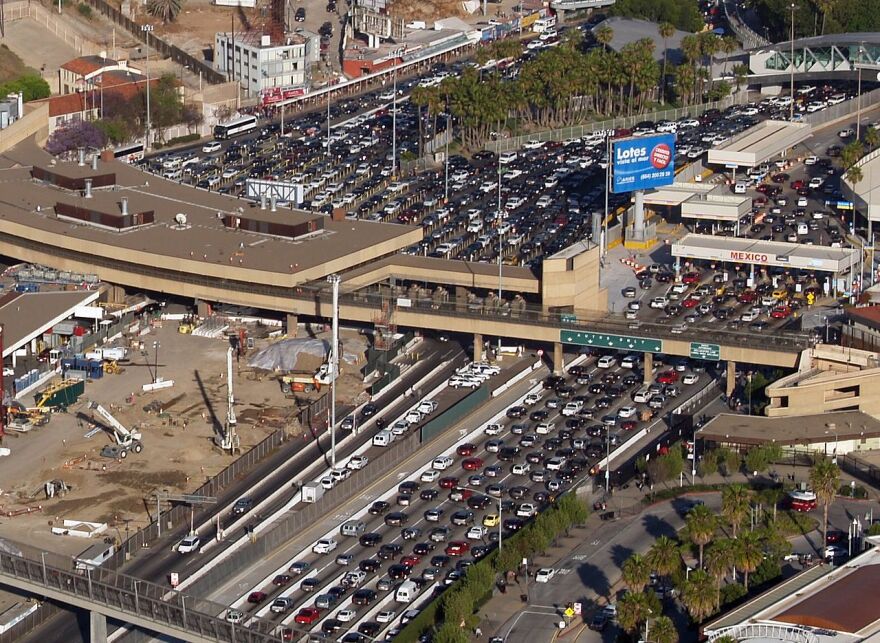Primavera Luqueno lives about a half hour away from the Tijuana port of entry in San Diego, California and is friends with Paola Mendevil, the owner of El Granjero on Bridge Street in Grand Rapids. Luqueno is used to going back and forth from the US and Mexico.
“I was three cars away at the border crossing in San Ysidro (EE-C-DRO) when they stopped letting people through because of what was happening with the immigrants.”
It was at the same time when the caravan of thousands of women, children, and men had reached the US-Mexico border in Tijuana. The migrants had been traveling by foot, many from Honduras, El Salvador and Guatemala.
“They thought that they were going to be able to come into the United States in the same way that they came into Mexico. They didn’t think about how different crossing the border into the US is. It just is totally different.”
When some of the migrants attempted to cross the border on Thanksgiving they were met by tear gas fired by the U.S. Customs and Border Protection Agency, and Mexican federal police.
Tear gas is considered a chemical weapon and prohibited from being used in warfare according to the Organization for the Prohibition of Chemical Weapons. However, it is legal to be used by police and federal authorities inside the US as a riot-control agent.
Whether, the event was considered a riot or not, Luqueno likes the way President Trump has been handling the situation by being up front, and asking them not to cross the border by force.
“I believe that President Trump informed the migrants that only those who had filed all the right paperwork and were trying to cross legally would be let in.”
Many of the migrants in the caravan say they are fleeing from violence in their home countries and are seeking asylum status in the United States. By law, they have the right to apply for asylum if they reach U.S. soil, through a border crossing or elsewhere.
Michelle Jokisch Polo, WGVU News.



